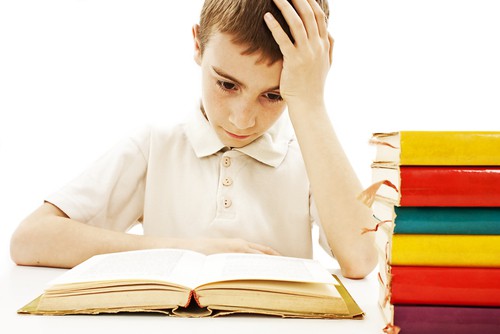
While it is often thought that people with dyslexia reverse number or letters the truth is that most do not and individuals who may have difficulty with reversals often do not have dyslexia.
Having difficulty reading often leads to poor academic achievement and may also result in low self-esteem or lack of self-confidence.
Dyslexia can be overcome with proper intervention and children with dyslexia can grow up to very successful adults.
What is Dyslexia?
Dyslexia is a brain-based type of learning disability that specifically impairs a person’s ability to read. These individuals typically read at levels significantly lower than expected despite having normal intelligence. Although the disorder varies from person to person, common characteristics among people with dyslexia are difficulty with phonological processing (the manipulation of sounds), spelling, and/or rapid visual-verbal responding. In individuals with adult onset of dyslexia, it usually occurs as a result of brain injury or in the context of dementia; this contrasts with individuals with dyslexia who simply were never identified as children or adolescents.
What Causes Dyslexia?
Dyslexia is thought to be caused by the influence of the genetic make up of the individual. Dyslexia often runs in families. It may also be related to auditory processing deficits which again may be genetically based or can be related to early development such as frequent ear infections during the early stages of language development.
How Can I Know if my Child Has Dyslexia?
If you feel your child is having difficulty reading, the first step would be to talk to your child’s teacher for his or her assessment. You can request that your child’s school conduct an assessment though some schools will first try modified instructional intervention called Response to Intervention (RTI). If this does not result in significant improvement a psychoeducational assessment by a school psychologist will be conducted. You can also talk with your child’s pediatrician who may make a referral to a developmental pediatrician or a child psychologist for assessment. Learn more about assessment from the International Dyslexia Association. Children with dyslexia may have other learning problems as well. You can learn more about the different types form the Learning Disability Association.
What is the Cure for Dyslexia?
First of all it is important that you identify the condition and start intervention as soon as possible. The evidence based intervention is intensive training in the basic reading skills including rapid letter naming, phonemics and phonics. One of the most used and highly effective methods is the Orton-Gillingham method. There are a number of reading programs based on this approach. The home version of the Elevate Materials from Reading Horizons is an excellent approach that is widely used in schools and clinics. Once your child is identified as having a specific learning disability in reading by a school district they will qualify for an Individual Educational Program (IEP) that will include participate in individual and small group reading improvement instruction. It is important that parents understand how the IEP process works and what to type of interventions to expect. You can learn more on this topic from the Learning Disability Association.
Research using brain imaging techniques shows that the brains of children with dyslexia function differently during reading than the brains of children who are good readers. The research also showed that brain function of the dyslexics became very much like the good readers and their reading skills improved. You can learn more about this study and dyslexia at The Yale Center for Dyslexia and Creativity
You can help your child by reading along with them. You can also get books for devices like Kendal or iPad that allows them to listen to the passages being read as they read along. It is important to be understanding and encouraging. Let them know that the problem is needing help developing reading skills and has nothing to do with intelligence. It is no different than another child needing extra help to learn how to ride a bike or learn how to draw.


